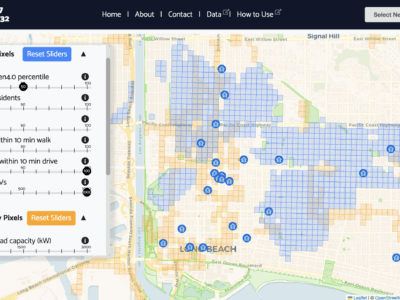National Academy of Science Says the Science of Climate Change is Clear and It’s Time to Act Now
The National Academy of Science has joined a growing chorus of scientists and policymakers in underscoring the need for strong action to combat climate change. The Academy released three reports today as part of its America’s Climate Choices project, a project Congress requested in the last year of the Bush Administration to address what Congress should do domestically to combat climate change. (In the interest of full disclosure I served as a member of one of the three panels releasing reports today.)
In Advancing the Science of Climate Change NAS authors say unequivocally:
Climate change is occurring, is caused largely by human activities, and poses significant risks for — and in many cases is already affecting — a broad range of human and natural systems.
The report examines twelve areas in which climate and human and natural systems interact, ranging from public health to national security to agriculture to freshwater resources. The authors also recommend creatingt a central U.S. agency to coordinate multi-disciplinary climate research.
In Limiting the Magnitude of Climate Change, (the panel on which I served) the Academy recommends that Congress
establish a greenhouse gas emissions “budget” that sets a limit on total domestic emissions over a set period of time and provides a clear, directly measurable goal.
The Limiting report warns that the longer Congress takes to begin to reduce greenhouse gas emissions the harder the task will be as the reductions will need to occur more quickly in order to stabilize temperatures. The Academy also recommends placing a price on carbon — either through a cap and trade system or through a tax — as the most cost effective means to reduce emissions. Additional policies, detailed in the report, will be necessary as well.
In Adapting to the Impacts of Climate Change, the NAS panel
concludes that adaptation to climate change calls for a new paradigm–one that considers a range of possible future climate conditions and associated impacts, some well outside the realm of past experience.
Though adaptation will require actions from all levels of government the report calls for a “national adaptation strategy” to coordinate multi-jurisdictional responses. The adaptation panel also makes clear that adaptation and limiting greenhouse gas emissions must both occur and are not mutually-exclusive strategies. To the contrary,
the two approaches should be seen as partners, given that society’s ability to cope with the impacts of climate change decreases as the severity of climate change increases.
I’ve read all three of the reports and I’ll put in a plug here for why you should too. They’re really comprehensive, well-written, meticulously researched up-to-date analyses of three of the most important topics on climate change: what is the state of the science, how do we limit the worst effects of climate change and how do we adapt to the changes that will occur regardless of what actions we take to reduce emissions?










Reader Comments